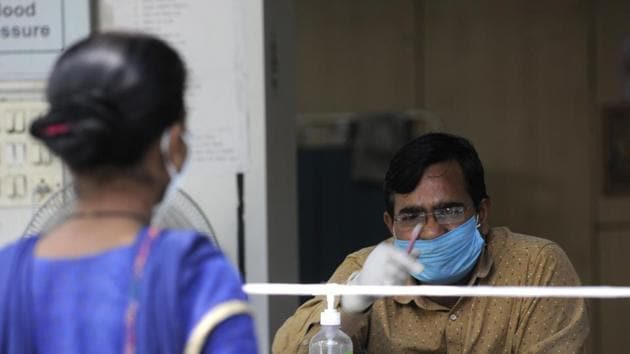Covid-19: What you need to know today
Many rapid antigen tests are inaccurate when it comes to so-called false negatives. In plain English, this means they show infected individuals as uninfected.
I have a data wish list. It changes, like all good wish lists must. The current wish list is heavy on data related to rapid antigen tests.

I have been writing for months about the context in which it makes sense for these tests to be used – and the context in which it doesn’t. I have also suggested a hack (two rapid antigen tests administered in parallel) if these tests need to be administered even in the context where it doesn’t make sense to. There is a reason for this. Many rapid antigen tests are inaccurate when it comes to so-called false negatives. In plain English, this means they show infected individuals as uninfected – potentially disastrous in the case of Covid-19 because it means infected individuals will be at large, infecting others, including those from the most vulnerable population segments.
But back to the wish list.
I’d like all states to separately mention the number of Reverse Transcription Polymerase Chain Reaction (or RT-PCR) tests – a mouthful, but these molecular tests are very accurate – and the number of rapid antigen tests they conduct every day, not just provide a consolidated number. I’d also like them to mention how many RT-PCR tests resulted in a positive identification, and how many antigen tests did. This might require some changes in how they report data – there isn’t a direct correspondence between the daily test and new case numbers (the latter correspond to the previous day’s numbers where RT-PCR tests are concerned, sometimes to tests done two, even three days previously), although everyone assumes there is one. But it can be done.
This information is important because antigen tests may push positivity rates down.
This is how the math works. According to the Harvard Medical School, for instance, the reported rate of false negatives in antigen tests could be as high as 50%. Consider a population where the prevalence of the coronavirus disease is 20% — a proportion that is lower than what sero surveys (antibody tests) have come up with in some parts of the country. This means that in a population of 100 people, 20 are infected. Let us assume this population is tested – half using RT-PCR tests and the rest using antigen tests – and that the number of infected is providentially shared equally between these two groups. Of the 50 who undergo RT-PCR tests, 10 are identified as positive (to be sure, there are times when these tests are also wrong, but such instances are rare). Of the 50 who undergo antigen tests, assuming a false negative of 50%, only five are identified as positive. The overall positivity rate works out to 15%, when it should actually be 20%. As the proportion of antigen tests in overall tests rises, it is clear that the positivity rate will fall.
Also read: Covid-19 respite for Mumbai unlikely till New Year says BMC, it has a logic
This is what states using a disproportionate number of antigen tests have to guard against. At one level, the inaccuracy of the test means a significant number of infected people are still at large (instead of being quarantined). At another, it means that the actual positivity rate in the state is higher than the reported number. Because many of the infections are mild or asymptomatic, the infected people are unlikely to require hospitalisation – although there is always the chance that they will infect someone from a vulnerable segment.
Over the past three days (September 8-10), between 85% and 87% of all tests conducted in Bihar (the state conducted over 100,000 tests on each of the days) were rapid antigen tests. Bihar’s average positivity rate over these three days was 1.2%.
In the same period, between 62% and 67% of all tests conducted in Uttar Pradesh (the state conducted at least 140,000 tests on each of the three days) were rapid antigen tests. Uttar Pradesh’s average positivity rate over these three days was 4.6%.
And, in Delhi, between 78% and 84% of all tests conducted over the past three days (the Capital conducted at least 45,000 tests on each of the days) were rapid antigen tests. Delhi’s average positivity rate over these three days was 7.6%.
Of the three, Delhi is the only state to have seen the trajectory that positivity rates follow in regions testing adequately (a rise to a peak and then a fall; Delhi’s peak positivity rate was 36.9% on June 13).
I have picked these three but there are other states, too, that use a significant number of antigen tests.
There is a context in which antigen tests can and should be used, but their indiscriminate use may well present an inaccurate picture.
The good news: accurate antigen tests have been developed (a previous instalment of this column wrote about one) and may soon be available in India.
Get Current Updates on India News, Lok Sabha election 2024 live, Election 2024 along with Latest News and Top Headlines from India and around the world.




